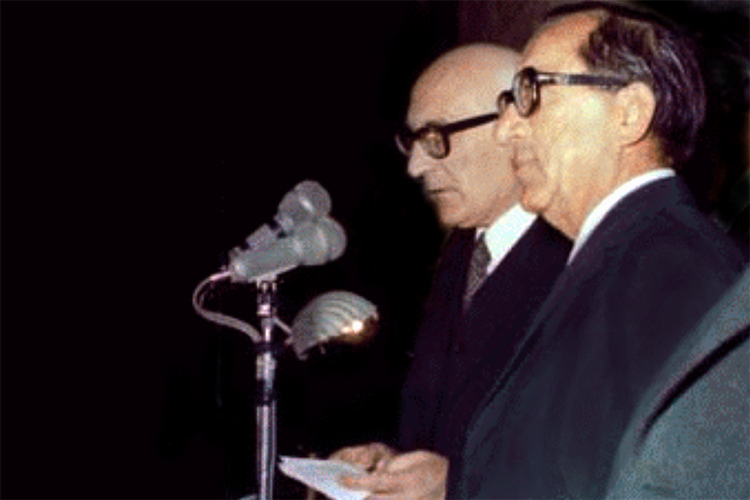Malta’s Black Monday 1979: Labour’s Darkest Hour

By 1979, Dom Mintoff’s decade in power had resulted in multiple social welfare accomplishments. However the 15th October 1979, the day that would become known as Black Monday, will forever be remembered as one of the darkest episodes in the political and press history in Malta.
1. 30th Anniversary of Dom Mintoff “celebration”
Valletta was expected to welcome thousands of Labour Party supporters in commemoration of the 30th anniversary of Mintoff’s Labour Party leadership.
Journalists working at the Times of Malta at the time reported that rumours of possible violence and attacks on their headquarters were already circulating during the days leading to the event.
2. Dom Mintoff’s alleged assassination attempt
The horrifying turn of events started in Castille.
Karmnu Grima, a Mintoff supporter, went to Castille to confront the then-Prime Minister about a piece of land which he insisted had been taken from him unjustly. What happened next is contested by Grima’s family to this day.
Armed with a gun, Grima allegedly ran up the Castille steps, determined to be let through after multiple unsuccessful events in the preceding months. Upon sighting Mintoff, Grima allegedly fired multiple shots, ultimately missing his target.
3. Mob violence rampage at The Times
Tension had been brewing all morning. As news of the gunshots broke out, part of the crowd that had gathered in Valletta turned violent, with several shops destroyed or set ablaze.
“Issa għat-Times” a rallying cry shouted by a group of thugs as they forced open the door of the Progress Press Offices in Valletta. In no time, the building was on fire, destroying thousands of priceless documents and photographs.
“On October 15, 1979, the night sky over Valletta was aglow with the flames of what must certainly have been the largest fire in the city since the war.” Victor Aquilina, Assistant Editor of the Times in 1979.

Scenes of the damage at the Times of Malta following the Black Monday inferno
4. Mob violence rampage at the Fenech Adami residence
The mob’s thirst was not yet quenched. The Nationalist clubs in Floriana and Birkirkara were ransacked as the violent thugs targeted Eddie Fenech Adami’s home. This mob not only wreaked havoc within the opposition leader’s house, but also physically assaulted his wife in front of their own children. Beppe Fenech Adami, 11 at the time, recounts that the thugs destroyed furniture and tossed it to the street, where a crowd of people cheered them on.
“Every time someone tossed out a piece of furniture, it was to a resounding chorus of applause and laughter.”

The ransacking of the home of former Nationalist Party leader Eddie Fenech Adami (seen here second left)
5. Political violence in the 1980s
From then on, security reasons forced Nationalist MPs to enter Parliament through the back door of the Presidential Palace. In the years that followed, civil unrest persisted in Malta. It was only in 1987, when the Nationalist Party was re-elected to government, that the situation gradually calmed down. The Labour Party paid the political price, remaining in opposition for twenty-four of the twenty-six years that followed.
Sources:
- https://timesofmalta.com/articles/view/unfaded-memories-of-black-monday.277047
- https://www.independent.com.mt/articles/2009-10-25/newspaper-opinions/Black-Monday-In-history-265282
- https://m.facebook.com/maltadaily.mt/videos/hot-seat-beppe-fenech-adami/462129995691571/
- https://timesofmalta.com/articles/view/black-monday-shooting-the-truth-will-out.285735
- Images sourced from Black Monday, A Night of Mob Violence by Victor Aquilina (unless otherwise specified).
This article is part of an ongoing collaborative series by Spunt.mt and Lovin Malta.
Lovin Malta is actively seeking new and exciting collaborations in Malta and Gozo. If you have a project you think deserves to join the brand, or are ready for the challenge of being on- or behind-the-camera talent for Lovin Malta, get in touch with us now on [email protected] or [email protected]
What do you think about this period of Maltese history?

